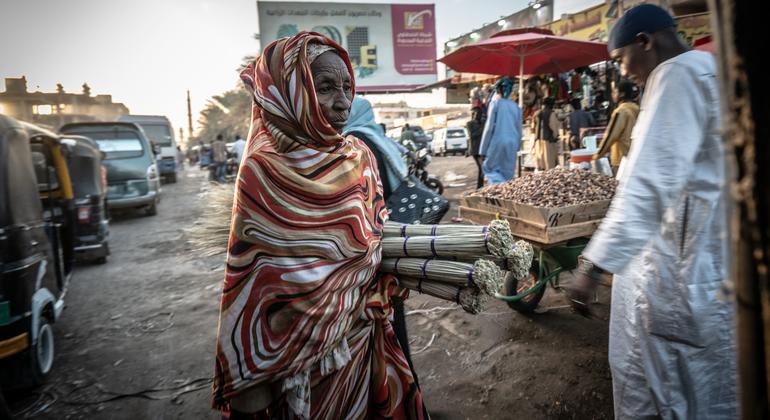This Tuesday marks the second anniversary of the outbreak of the war in Sudan, a devastating conflict that has pitted rival generals against each other since the overthrow of Omar Al-Bashir, hindering the transition to a civilian government. United Nations Secretary-General António Guterres has called on the international community not to forget the suffering of the Sudanese people and has expressed concern about the continued influx of weapons and fighters to the region, fueling violence and instability.
The situation in Sudan is worsening with a spiral of violence, especially in Darfur, where recent reports indicate that more than 400 civilians have lost their lives just over the last weekend. Guterres has pointed to external interference in the conflict, which could lead to the country fragmenting into zones controlled by various actors. In this context, Sudan is facing one of the most severe displacement crises globally, as well as the most severe humanitarian crisis. According to UNICEF, the number of children requiring humanitarian assistance has doubled in two years, reaching the alarming figure of 15 million, compared to nearly eight million in need in 2023.
On the other hand, in Ecuador, a massive oil spill caused by the rupture of the SOTE pipeline in the province of Esmeraldas has left 150,000 people in need. This incident, which occurred last month, has led to an increase in respiratory and gastrointestinal diseases, as well as limiting access to clean water. The situation is particularly challenging for more than 37,000 women whose sources of income have been affected, mostly engaged in shellfish collection, increasing their vulnerability to gender-based violence.
In Gaza, the humanitarian situation is also deteriorating due to recent Israeli attacks, which have left several hospitals operating at half capacity and jeopardizing medical care. According to the World Health Organization, only 21 of the region’s 36 hospitals are functioning partially, leading to a critical situation where patients are being treated in inadequate conditions. The UN Relief and Works Agency for Palestine Refugees (UNRWA) has raised concerns about the lack of humanitarian aid, exacerbated by the Israeli blockade.
Finally, in Myanmar, the situation is further complicated by a devastating earthquake that occurred on March 28, leaving more than 3,000 dead and affecting 17.2 million people. In response to this humanitarian emergency, UNHCR has transported over 40,000 kilograms of essential supplies to survivors, further worsening a situation already marked by internal conflict. The interconnectedness of these crises in various regions of the world underscores the urgent need for a coordinated and effective international response.
Source: MiMub in Spanish










